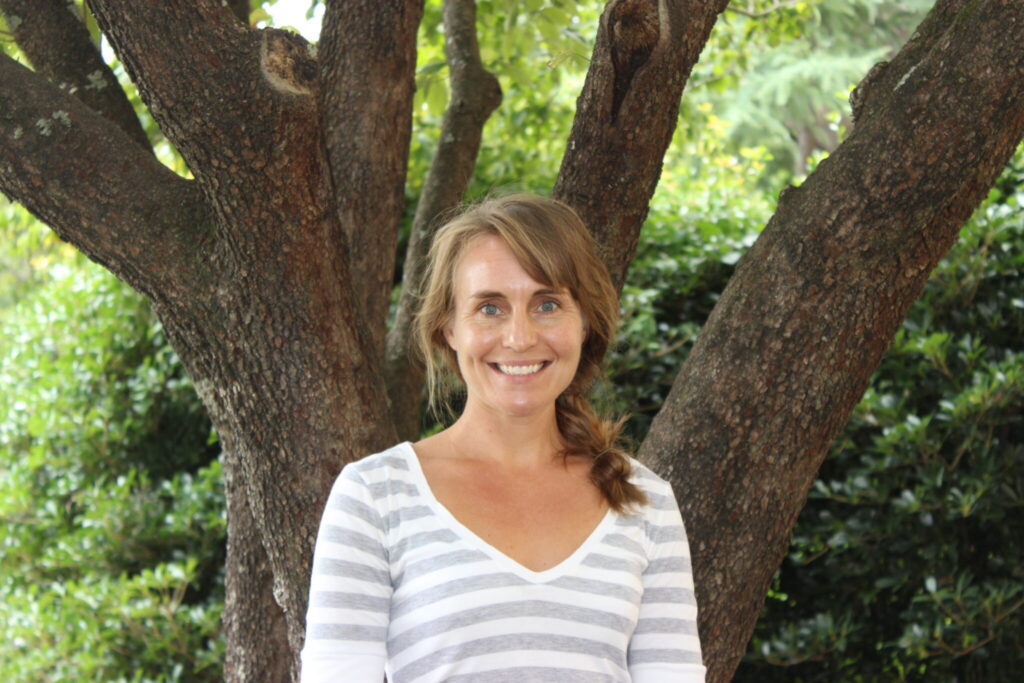
Sarah Stotz, an assistant professor at the Department of Food Science and Human Nutrition at Colorado State University, is focusing her research on nutrition-related chronic diseases, bringing in her experience from the University of Colorado Denver and the Colorado School of Public Health at the Centers for American Indian and Alaska Native Health.
Tell us a bit about yourself!
I am originally from Rochester, Minnesota, but I’ve lived in many places since I graduated from high school in Minnesota. These include Madison, Wisconsin; Saint Louis, Missouri; San Diego, California; Quito, Ecuador; Atlanta, Georgia; Athens, Georgia; and now Denver, Colorado. I received my bachelor’s degree (dietetics) at the University of Wisconsin—Madison. I then received my master’s degree (nutrition) at Saint Louis University in Missouri, and then my Ph.D. and post-doctoral degree (community nutrition) at the University of Georgia. Outside of academia, I enjoy reading, traveling, spending time with my family, yoga, and napping.
What brought you to Food Science and Human Nutrition at CSU?
After completing my post-doctorate at the University of Georgia, I wanted to move to Denver to be closer to my family. I got a faculty position at the University of Colorado Anschutz Medical Campus and spent four years there in the Colorado School of Public Health at the Centers for American Indian and Alaska Native Health (CAIANH). Though I love working at CAIANH, I always wanted to be in a nutrition department, and now I get the best of both worlds because I get to work in a nutrition department at a land-grant university (CSU) while keeping an affiliate position with the University of Colorado Denver and CAIANH.
What are your research and/or teaching interests, and how did you get interested in that topic?
My research focuses on addressing food and nutrition insecurity as it impacts adults with nutrition-related chronic disease, like diabetes, with emphasis on health disparities, nutrition education, social determinants of health, and multilevel/community-based participatory research approaches to chronic disease management and prevention. My work largely focuses on serving American Indian and Alaska Native communities and I have methodological expertise in qualitative and mixed methods research.
What is your favorite thing about CSU so far?
I am excited to have like-minded peers in my department and across campus and to be able to learn from and collaborate with them. I’m also grateful for the grant management and administrative support in my college and department.
The Department of Food Science and Human Nutrition is part of CSU’s College of Health and Human Sciences.